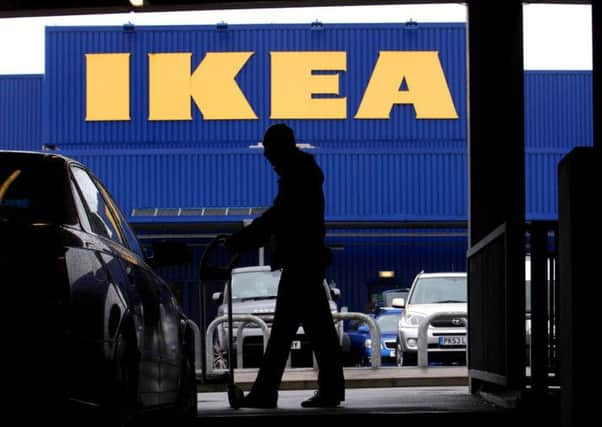Jayne Dowle: Should we really allow big business to run country?


Actually, it has been judged the most demanding of all Oxbridge admissions interview questions. Now is not just the season of queues and frustration you see. It’s also the time of year when hopeful candidates are put through the mentally-gruelling application process to fight for a place at the most prestigious universities in the land. This particular toughie comes from Social and Political Sciences at Cambridge.
There is no right or wrong answer to Oxbridge interview questions. Therefore, whatever arguments you marshall, whatever conclusion you might come to, you’ve got a fighting chance. Come on then, why not give it a go? After all, we spend enough time moaning about how politicians haven’t got a clue. Wouldn’t it be better if we let the managers of a massive multi-national corporation run the show instead? Especially ones who had plenty of experience of showing people how to form orderly queues and live in houses which are kept ever so neat and tidy?
Advertisement
Hide AdAdvertisement
Hide AdIt is a question which coincidentally has been exercising one of the sharpest political minds of modern politics: Tony Blair – St John’s, Oxford – no less. He is arguing that political leaders could learn much from the dynamism of the private sector. This is a big idea gathering pace in political circles. Don’t under-estimate it. And don’t assume that it is doesn’t apply to you. For years now, the argument has been that we need more “ordinary” people from grass roots level to represent our interests in Westminster. This remains a desirable ideal, of course. Tony Blair cites his experience in real life – he was a barrister before entering politics – as invaluable because it proved to him that there is life outside of the Westminster bubble.
The argument has been well-rehearsed. Too many MPs are drawn from the ranks of political researchers and party apparatchiks. However, the big question is whether we have been looking in the wrong place for leadership. Here’s what Blair has to say: “Look at the top companies by market capitalisation and how new names have displaced the old. This is the way of the world, except in government. We go along in the same old way – unable to change, owing in part to top-down bureaucracies that manage the status quo instead of changing it.”
Disentangle all that and what you have got in plain English is this. Big companies – let’s take Capita, for example – are gaining more control over our lives than any Government department. In general too, if you judge it on the law of averages, they make a fairly decent fist of it. Give or take the odd disaster with computer systems, they must be doing something right.
Therefore, it can be argued that government could actually learn a lot about dealing with public concerns, delivering services and generally running an efficient society from the private sector.
Advertisement
Hide AdAdvertisement
Hide AdI’ll give you a good example. I always thought that Capita just dealt with paying wages for local council workers. In fact, it’s got more control over our lives than you might imagine. According to its Wikipedia entry, it’s “the largest business process outsourcing and professional services company in the UK”. Put simply, this means that it has a finger in more pies than you can ever imagine.
For example, I was making some enquiries about smart meters the other day. These are one of the coalition Government’s “bright ideas”. Every energy company is being encouraged to install them in our homes so we can monitor how much gas and electricity we use. When they are in place, there will be no need for a traditional meter reader to call at your home. It will all be done digitally and automatically. Who do you think is in charge of the roll-out? Not the government. Not the energy companies. No, it’s Capita.
This is just one example of how these huge conglomerates extend their reach into every corner of our lives. You only have to look at GE in the United States and see how it covers everything from healthcare and banking to switching on the lights.
What has been happening whilst no one has been looking is that private companies have gradually been taking over the functions once held by public services. And what people like Tony Blair are now asking is, if they are so good at doing the job, shouldn’t government be looking at how they actually do it?
Advertisement
Hide AdAdvertisement
Hide AdThis brings us back to the IKEA question. A government run along neat, tidy and streamlined lines sounds like a tempting concept. However, I will leave you with another thought. Can you really package the entire democratic process into a flat-pack box? Discuss.